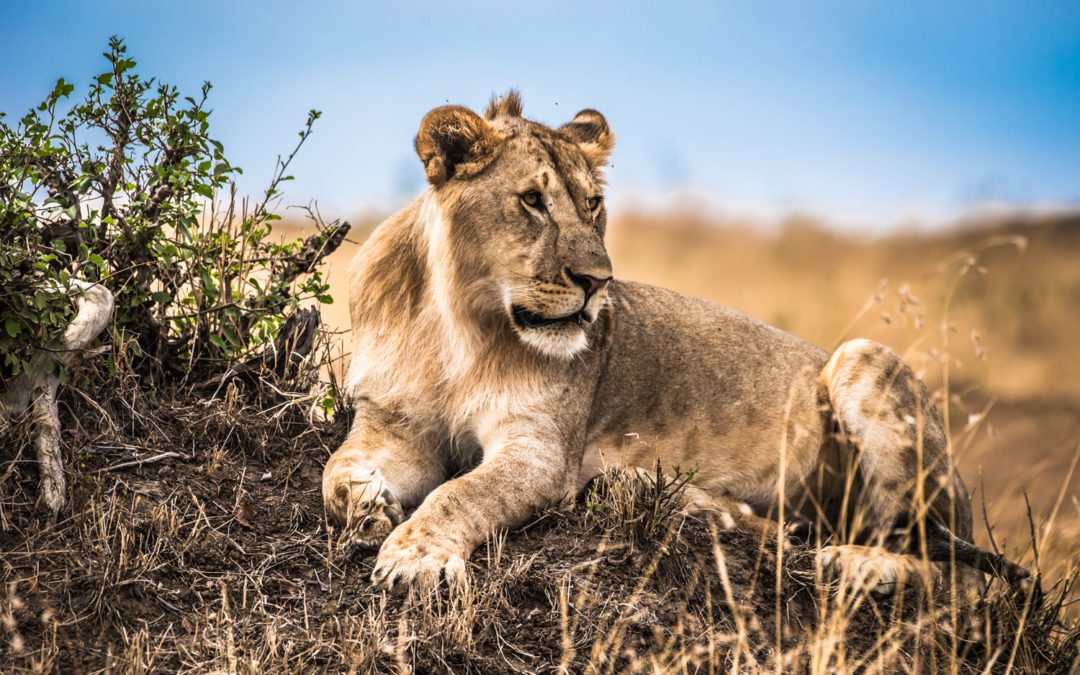The very name Tsavo had negative connotations – its meaning in the language of the local Kikamba natives was “slaughter.” In 1898 and on into 1899, the appropriateness of the term would become terrifyingly clear. In truth, the site was notorious among caravan leaders and natives long before the railway reached the river. Many caravan porters deserted at Tsavo. Legend had it that a certain evil spirit would entice the men away at night and after leading them down to the river, whisk them away. The area was also known as an old killing ground of the dreaded Masai warriors. Indeed, it had an aura of evil about it.
No sooner had the railroad established its camp when these ominous portents became grisly reality. Searchers looking for a missing coolie found only the man’s skull and feet surrounded by a profusion of lion tracks. The spectre that would haunt Tsavo for many months had assumed substance. Further investigation uncovered other human skulls and skeletons scattered around the area.
Within days, the phantom lions killed again. This time the flesh of a worker’s face had been torn off, leaving the teeth exposed to form a horrible grinning expression. The hideous remains produced instant pandemonium among the coolies. Tsavo had, as the head engineer so pithily put it, become a “death hole.”
The Lunatic Express, plus 40 other exciting stories by some of the greatest hunting authors, including Ruark, Hemingway and Capstick, can be found in Sporting Classics’ Africa.
Add to, or begin, your collection of great hunting books today. Click Here to buy now or visit www.sportingclassicsstore.com for other great books!


